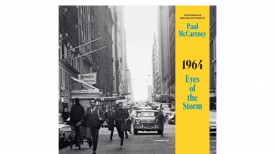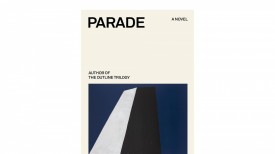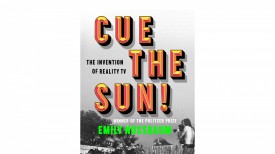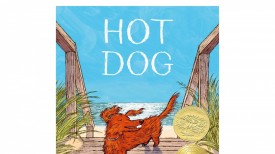'The Great Divide' by Cristina Henriquez Book Review: A Panoramic Tale of the Panama Canal
"The Great Divide" is a novel in which the intertwined fates of many characters are vividly portrayed as they are involved in building the Panama Canal. Francisco, an anti-foreign influence framework, has an adversarial outlook toward Omar's endeavor to work there. Ada, an ambitious woman from Barbados, is looking for work to finance her sister's surgery.
Scientist John, grappling with his wife's illness, hires Ada as a caregiver. This decision sparks a narrative of ambition, loyalty, and sacrifice among various activists, laborers, and caregivers. A connection of their lives reflects the significant backgrounds of silent heroes who practically changed history.
The Author
In "The Great Divide," Cristina Henríquez, a renowned author, brings the Panama Canal and its construction to readers' attention and tells the stories of those unfamiliar with history. Among her numerous remarkable projects, "The Book of Unknown Americans" stands out as it was praised by the New York Times, NPR, and many other major media outlets.
Henríquez's literary portfolio continues to grow and diversify, encompassing novels, novellas, and essays, from which her audience still adores her for her insightful storytelling. An alumnus of the Iowa Writers' Workshop and a winner of several distinguished honors, including the Alfredo Cisneros Del Moral Foundation Award, Henriquez's works of literature are nonetheless significant.
Her works, published in notable magazines such as The New Yorker and The Atlantic, represent her writing philosophy on identity, immigration, and the human condition. As a National Book Awards judge and a National Public Radio guest, Henríquez's influence in the literary world resonates deeply.
Unveiling Untold Stories
According to The Washington Post, the book is a poignant novel exploring the construction of the Panama Canal, shedding light on often overlooked figures in history. The narrative, set against societal paradoxes and epidemics, follows diverse characters like Ada Bunting and Omar Aquino, embodying hope, struggle, and resilience amid the monumental engineering project.
The reviewer indicated that Henríquez's masterful prose captures the landscape and complexity of her characters, enriching the literary history of Latin America. Despite some uneven storytelling, the novel's ambition to portray the intimate lives of forgotten individuals underscores the human cost of progress and division, resonating long after the canal's completion in 1914.
READ ALSO: Empowering Literature: 6 Books Written by and About Powerful Women
Deconstructing Imperial Narratives
Kirkus Reviews said Henríquez's novel offers an anti-imperialist fairytale set during the construction of the Panama Canal. Through multiple characters of diverse backgrounds, Henríquez navigates various subplots, including the plight of Ada Bunting, a biracial heroine from Barbados, and her romance with Panamanian Omar Aquino.
The reviewer stated that the narrative touches on historical events like the Panamanian Civil War and the US intervention. While Henríquez's prose is lyrical and depicts white Americans and Caribbean planters accurately, the characters, including Ada, lack depth, hindering the novel's potential to captivate readers fully despite its ambitious scope.
However, the novel effectively exposes lesser-known historical facets and challenges imperialist narratives, contributing to a nuanced understanding of the Panama Canal's impact.
Diversity and Resilience
A review from Goodreads articulated that the book intricately captures Panama in 1907, vividly depicting the oppressive heat, lush landscape, and bustling activity of the Panama Canal construction site. Rather than solely focusing on the tragic toll of construction, the novel delves into the lives of diverse characters drawn to the project, exploring how it disrupts Panamanian society.
The reviewer said that the characters are richly developed, their stories weaving together themes of division - both physical and societal - and longing for connection. The narrative skillfully navigates class, race, and interpersonal divides, showcasing the resilience of the human spirit amid loss and grief.
While many characters find resolution, some stories quietly fade, underscoring the complexity of human experience. The reviewer concluded that "The Great Divide" celebrates collective achievement and underscores the profound impact of unity in overcoming challenges.
RELATED ARTICLE: 5 Must-Read Historical Fiction Books About Books
© 2023 Books & Review All rights reserved.
Popular Now
1
Books to Read After 'Fourth Wing': Top Picks for Fantasy and Romantasy Fans

2
‘The Secret Public’ by Jon Savage Book Review: An Insightful Look Into the LGBTQ Influence

3
Stephanie Regalado's 'If They Only Knew' Column Is Now A Book, Unleashing 60 Anonymous True Stories to Empower Women

4
'No Wire Hangers' Scene That Almost Did Not Happen: New Book Reveals Faye Dunaway's Struggles

5
Rare First Edition of Aphra Behn's Novel 'Oroonoko' Discovered in Kent: A Historic Literary Find

Latest Stories
Book Reviews
‘The Secret Public’ by Jon Savage Book Review: An Insightful Look Into the LGBTQ Influence

Book News
Stephanie Regalado's 'If They Only Knew' Column Is Now A Book, Unleashing 60 Anonymous True Stories to Empower Women

Book News
'No Wire Hangers' Scene That Almost Did Not Happen: New Book Reveals Faye Dunaway's Struggles

Book Reviews
‘The Perfect Couple’ by Elin Hilderbrand Book Review: A Captivating Summer Mystery

Book News
New Book ‘The Franchise’ Reveals Penguins President Kyle Dubas’ ‘Biggest Mistake’ as Maple Leafs GM











